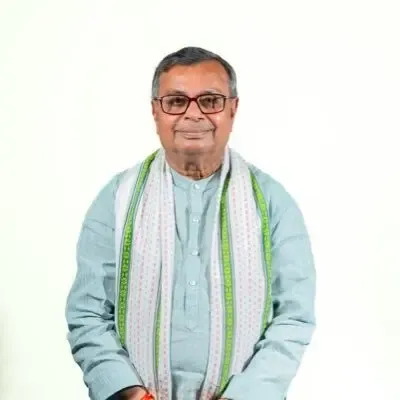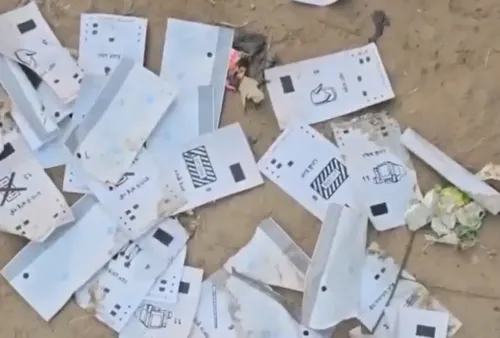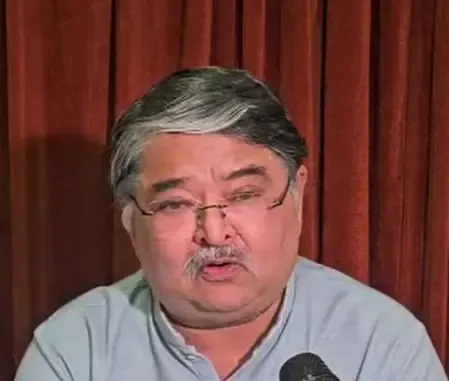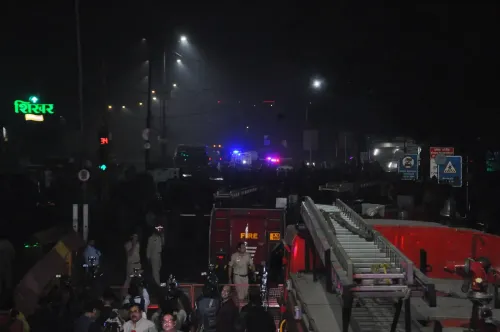Rajya Sabha Chairman and Party Leaders to Address Cash Discovery at Judge's Residence
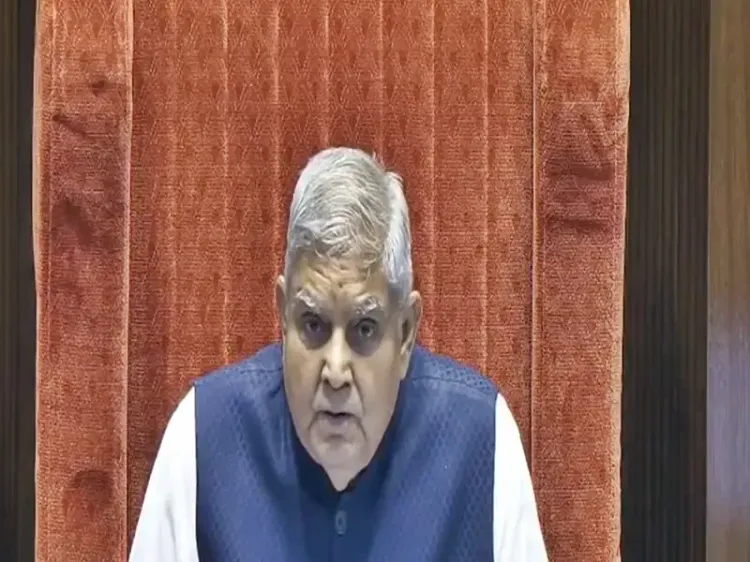
Synopsis
Key Takeaways
- Chairman Dhankhar to discuss cash discovery from a judge's residence.
- Leader of Opposition Kharge initiated the discussion.
- Importance of revisiting the NJAC Act highlighted.
- Call for reflection on parliamentary sovereignty and supremacy.
- Emphasis on the principle of innocence until proven guilty.
New Delhi, March 25 (NationPress) Rajya Sabha Chairman Jagdeep Dhankhar is set to engage in discussions with the floor leaders of various political parties on the alleged discovery of cash from the official residence of a Delhi High Court judge this Tuesday.
This topic was brought up in the Rajya Sabha earlier today, where the Leader of Opposition (LoP) Mallikarjun Kharge urged the Chairman to facilitate discussions among the floor leaders regarding this situation. In response, the Chairman acknowledged the LoP's request.
Kharge had previously made a similar suggestion during a meeting with the Chairman on Monday.
On Tuesday, the Chairman announced to the House that he would convene a meeting to discuss the issue with leaders from different parties in his chamber.
Chairman Dhankhar stated, “I am confident we will have a productive dialogue and identify a solution, as both the legislature and judiciary achieve optimal performance when they excel in their respective domains. I do not wish to pass judgment on any matter, but it is widely accepted in the country that all materials available with the Supreme Court have been shared with the public, and the formation of a committee... with that speed, I am certain information will be accessible to us.”
Dhankhar emphasized that it is an appropriate time to revisit the National Judicial Appointments Committee (NJAC) Act, which was deemed unconstitutional by the Supreme Court in 2015. “This House, in the spirit of dignity, unanimously established a legal framework in 2015, and that constitutional structure, which emerged with one abstention from Parliament and was endorsed by state legislatures, should uphold the rule of law as it was sanctified by the Hon'ble President under Article 111. Now is the right moment for all of us to reaffirm this, as it was a visionary step backed by Parliament. Imagine how different things might have been if that had been enacted,” he remarked.
The Chairman continued, “Hon’ble Members of Parliament, I invite your thoughts on a crucial point. What originated from the Indian Parliament as a historic event with rare unity since Independence gained acceptance from necessary State Legislatures. We must reflect on its current status. Under the Constitution, there is no provision permitting anyone to alter that. There is no constitutional provision for reviewing or appealing a constitutional amendment. While legislation by Parliament or state can undergo judicial review for conformity with constitutional provisions, we currently face two scenarios: one, the outcome from the Indian Parliament, duly endorsed by State Legislatures and sanctioned by the Hon’ble President under Article 111, and second, a judicial mandate. We are at a pivotal juncture,” he stated.
“I strongly encourage members to contemplate this. No institution should violate what has emerged from Parliament, endorsed by legislatures. I reiterate that this should continue to be the prevailing mechanism. It is time for us, having witnessed such an extraordinarily distressing situation... We uphold the principle of innocence until proven guilty. Members should consider, and consequently, actions taken by me, along with the wise counsel from the Leader of the Opposition and the Leader of the House...,” the Chairman remarked.
“We will return to the House regarding this critically significant issue, which transcends mere judicial confusion. It pertains to the sovereignty of Parliament, the supremacy of Parliament, and our relevance as an institution. If we amend the Constitution, and that amendment is not executable, I firmly believe that Parliament holds the authority. Any power...in any institution must ensure what emanated from the Indian Parliament, sanctified by the requisite number of State Legislatures, remains valid,” he added.
Dhankhar concluded by stating, “Hon'ble Members, I had the privilege yesterday of receiving wise counsel from the Leader of the House and the Leader of the Opposition, who graciously accepted my invitation for dialogue on this critical issue that is concerning all branches of governance. The matter is undoubtedly grave. Together, we acknowledged the developments and also recognized the positive step that for the first time, the Chief Justice of India took the initiative to make everything public, but then a suggestion was made by the Leader of the Opposition and agreed upon by the Leader of the House that this issue requires my facilitation for discussion with the floor leaders...”

